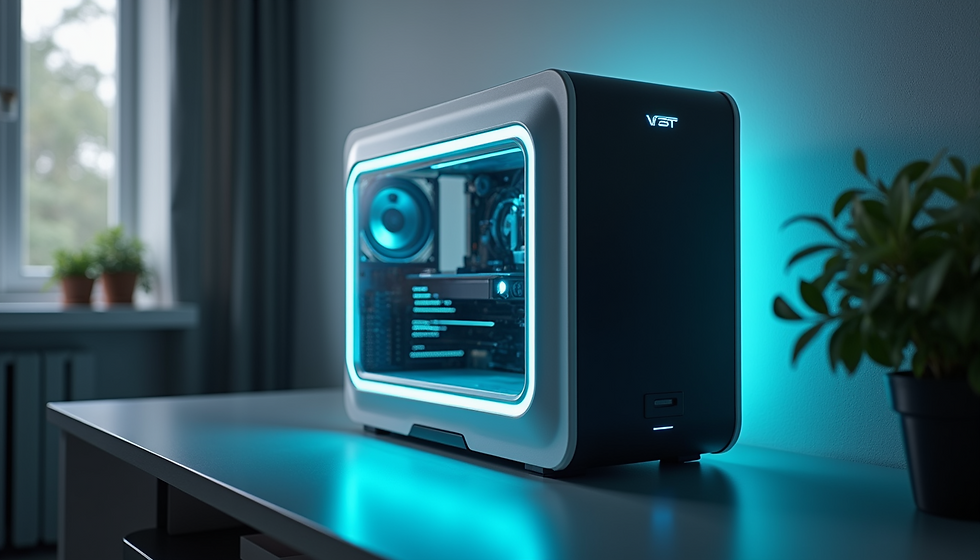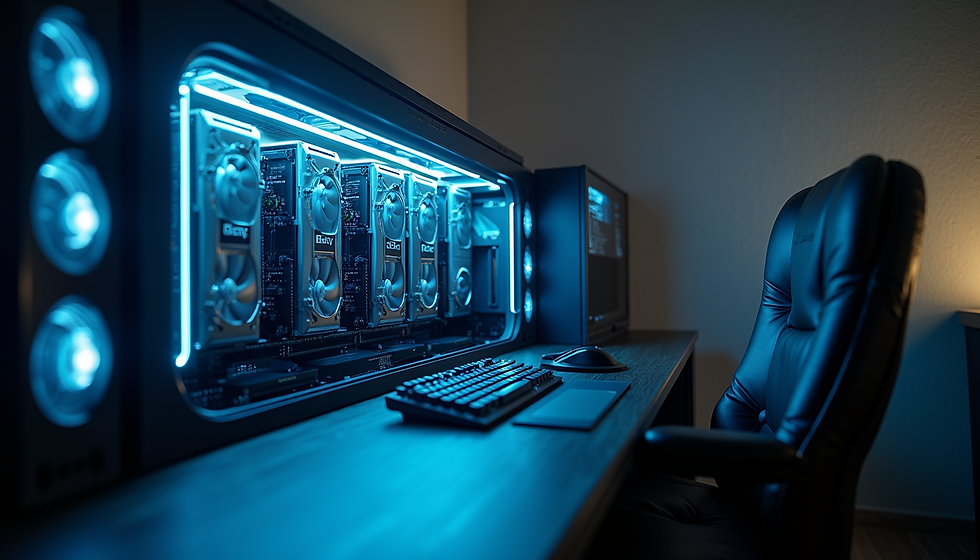How the Tariff War Affects the Second-Hand Market for Computer Parts
- Apr 17, 2025
- 3 min read

The renewed tariff tensions between the U.S. and China in 2025 have once again stirred global supply chains—particularly in the electronics and computing sector. With new import duties reaching as high as 145% on select Chinese goods, including computer-related components, the entire hardware market is feeling the pressure.
While much of the public discourse focuses on new electronics, these trade policies are also reshaping the dynamics of the second-hand market for computer parts. For over a decade, I’ve been helping businesses manage surplus IT hardware—from decommissioned servers to out-of-warranty GPUs—and I’ve never seen a moment more pivotal for used tech.
The Impact of Tariffs on New Computer Hardware
The recent round of U.S. tariffs targets a broad swath of Chinese imports, including power converters, circuit boards, and finished electronic goods. As new hardware becomes costlier to import, domestic prices inevitably climb.
A recent TRC Electronics report highlights that tariffs on electronic power conversion products jumped from 25% to 35%, with other components following suit. Meanwhile, China has retaliated with restrictions on critical minerals like tungsten and tellurium—materials that are foundational to modern semiconductor manufacturing.
This one-two punch of tariffs and material scarcity is driving up lead times, increasing the cost of production, and putting pressure on companies that rely on steady access to affordable computing equipment.
How This Shifts the Second-Hand Market
1. Rising Demand for Used Components
As new hardware becomes more expensive and harder to source, IT managers, small businesses, and system integrators are turning to second-hand solutions. The resale market for used GPUs, CPUs, and RAM is seeing elevated demand, particularly for high-performance units that still meet modern standards.
Searches for how to Sell Used GPU or Sell RAM have increased, not just among companies looking to buy, but from businesses holding unused inventory looking to capitalize on the current market conditions.
2. Higher Resale Value for IT Assets
Used hardware is becoming a hot commodity. A previously decommissioned workstation GPU or a tray of DDR4 ECC memory modules that might have gone for scrap value a year ago can now command a much stronger resale price.
Companies with proper IT asset tracking systems are well-positioned to benefit from this shift. Even older-generation equipment—if it’s functional and in good condition—can contribute meaningfully to recovery budgets, especially if it's resold in bulk.
3. Shift Toward Domestic Refurbishment and Recycling
Tariff risks are pushing many organizations to source hardware domestically or through trusted secondary channels. In turn, this has revitalized interest in ITAD (IT Asset Disposition), secure hardware disposal, and refurbishment as part of circular economy strategies.
With export restrictions tightening and international logistics growing costlier, more organizations are now looking inward—reselling or buying used hardware within North America rather than dealing with overseas vendors.
Strategic Takeaways for Businesses
If you're managing IT infrastructure in a mid-sized enterprise, data center, or MSP, here’s what this means for you:
Take inventory of idle assets: That older batch of GPUs or RAM might be worth far more today than it was last year.
Explore resale options: The market is favorable for sellers, especially for components with continued relevance in AI, data analytics, and gaming.
Buy smart: If procurement costs for new equipment are stretching your budget, consider certified refurbished alternatives that deliver strong ROI without the tariff markup.
Final Thoughts
While global trade policies will always ebb and flow, the implications of this latest U.S.-China tariff war are already being felt across the hardware ecosystem. For those who are agile and informed, the second-hand market offers an immediate opportunity: save money, reduce e-waste, and stay resilient during a volatile time.




Comments